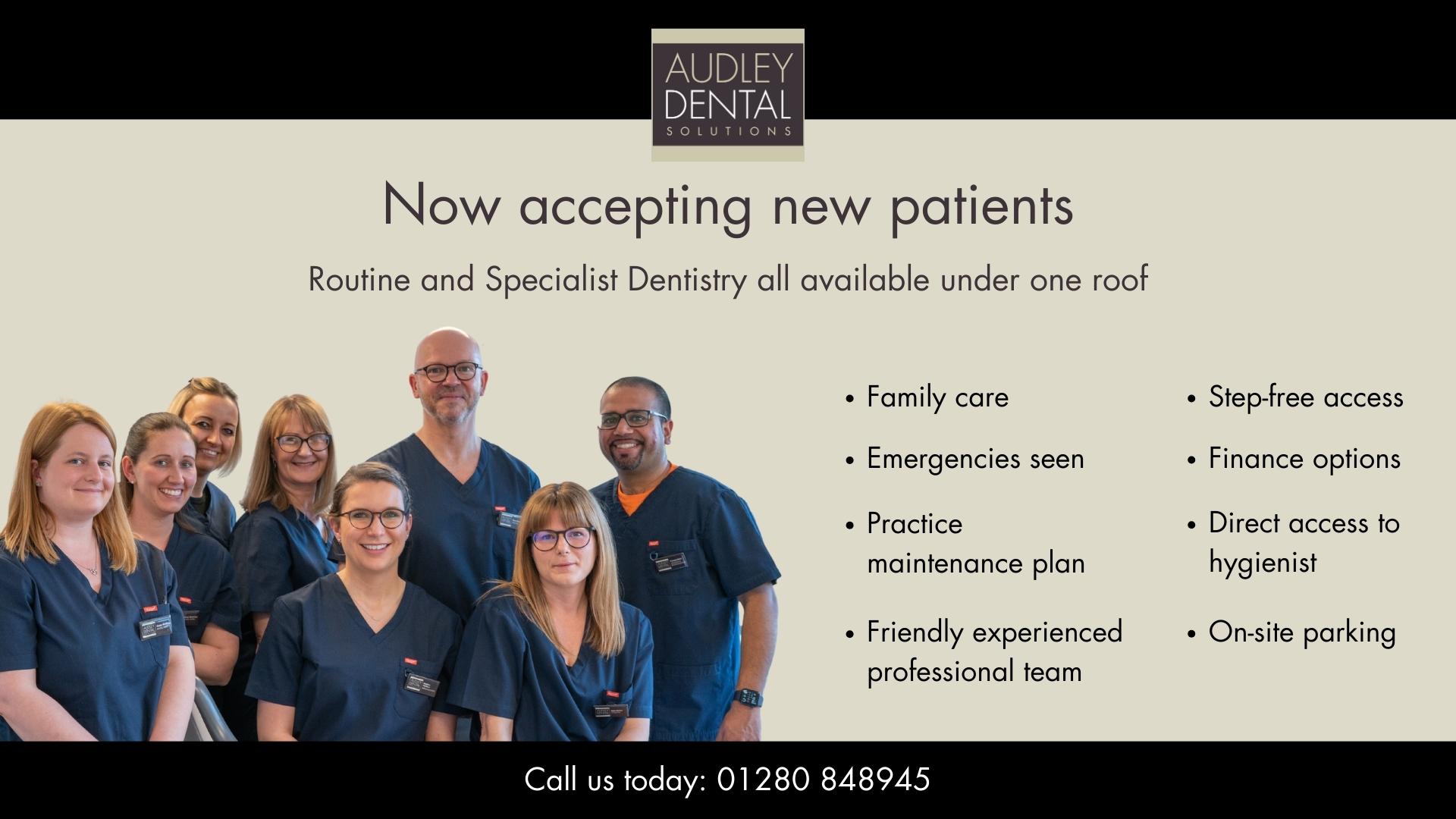If you have dental implants then your oral hygiene routine will largely follow the same procedure as those without implants. However, it is particularly important you practice good oral hygiene to ensure your dental implants last and also to prevent infection around them.
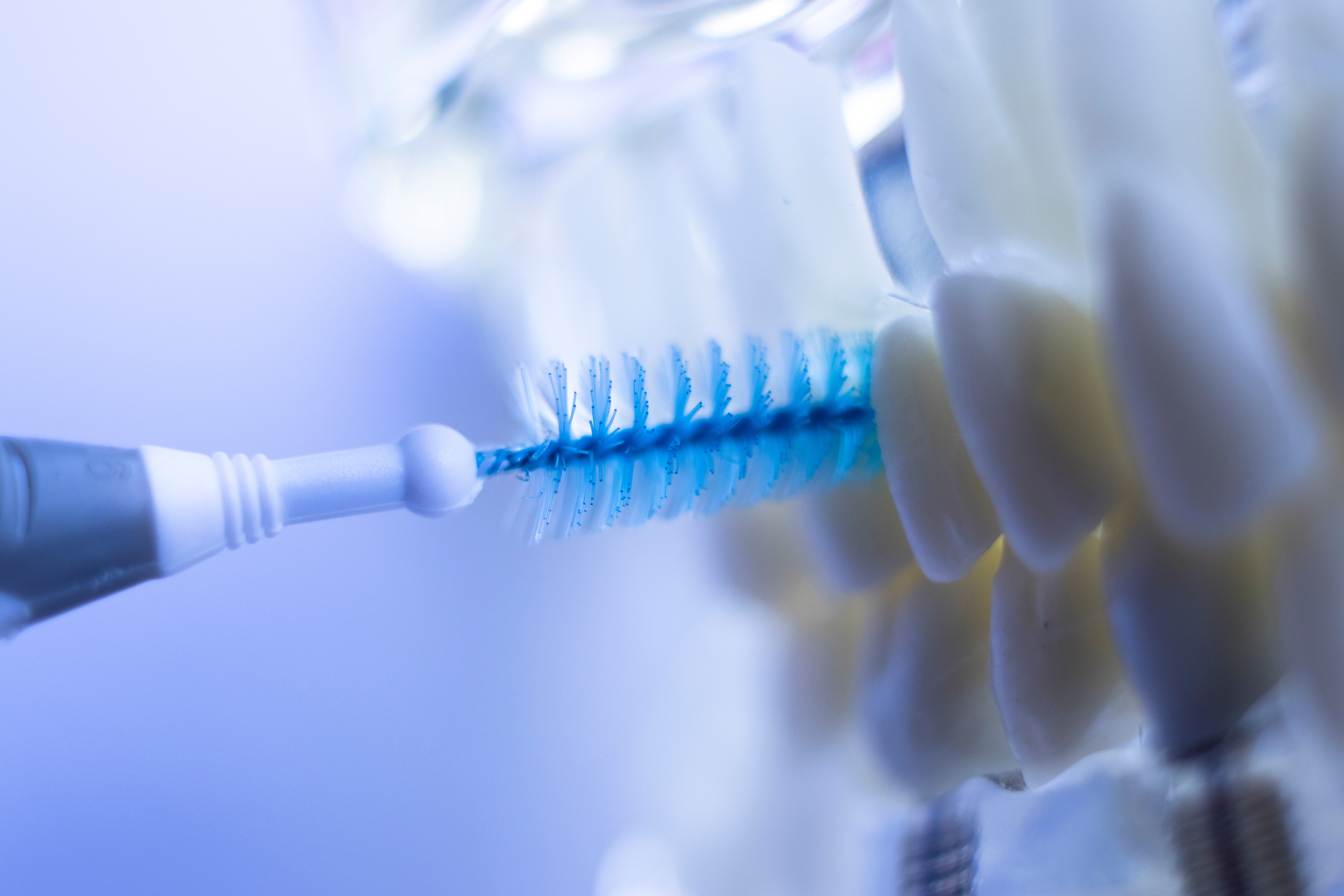
Whilst most of us would not dream of going to bed without brushing our teeth; we tend to be a bit more lax when it comes to cleaning the areas between our teeth. In fact, it’s just as important if not more so, to clean those hard-to-reach spaces. Food debris can get stuck in between the teeth or dental implants and under the gum line and if it’s not removed, it can cause gum disease, dental decay, and bad breath. It can also reduce the lifespan of your dental implants.
Brushing with a toothbrush alone will only reach around 60% of the tooth surfaces. Leaving a worrying 40% of harder-to-reach tooth surfaces prone to developing plaque.
Most dentists and dental implant experts recommend cleaning between your teeth or dental implants, once a day after regular brushing. An interdental brush is an excellent tool for cleaning the area between your teeth and removing plaque and food from this hard-to-reach area.
What is an interdental brush?
Interdental brushes are readily available and can be bought from supermarkets and chemists. They have small bristled heads and come in a variety of different sizes. The size you choose will depend on the size of the gap between your teeth. Some people have different size gaps in different spaces, so you may have to use more than one size. Often, people need a larger brush for the back teeth and a smaller size one for the front teeth.
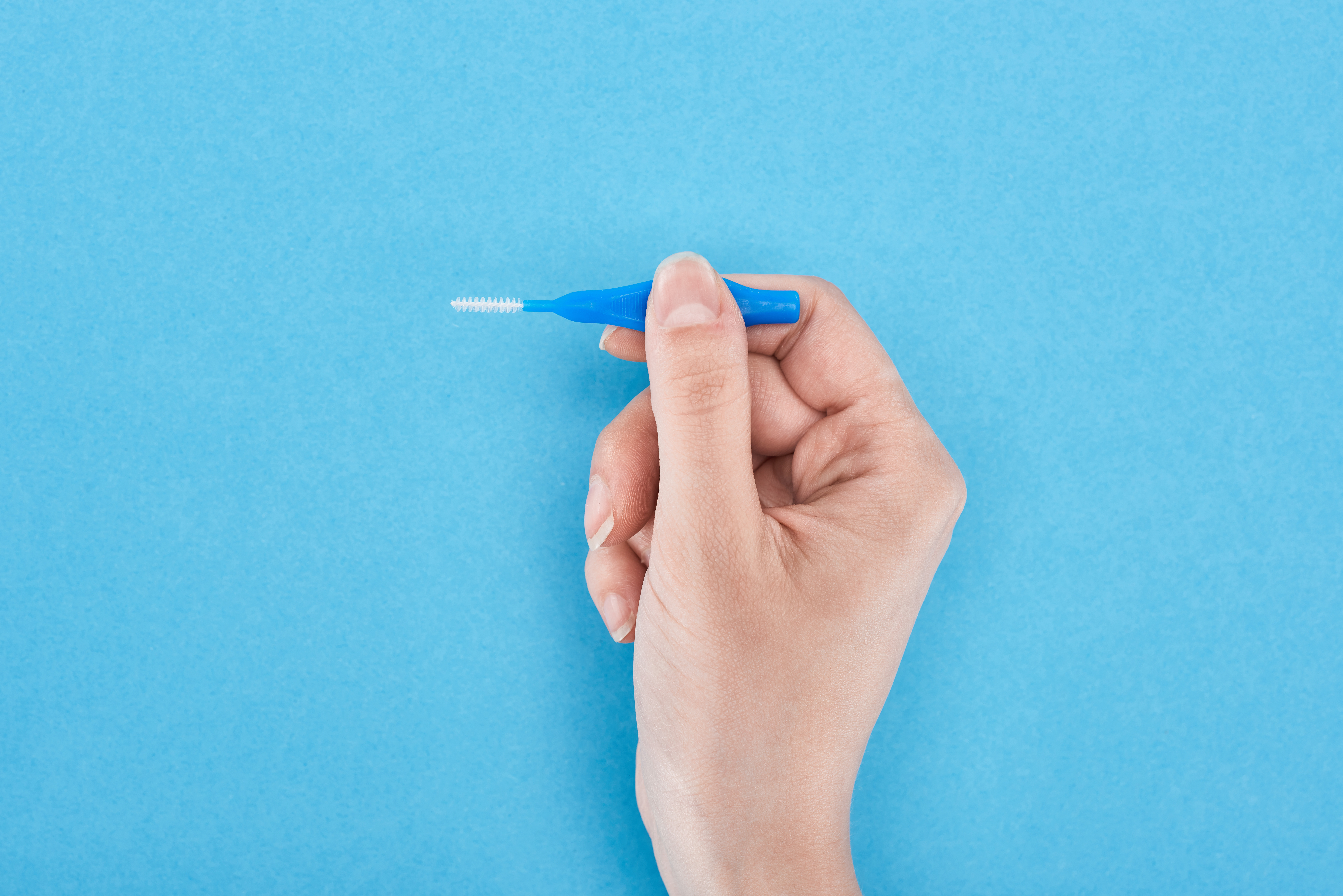
How do I use an interdental brush?
Once you have brushed your teeth with a toothbrush and toothpaste you can start your interdental brushing routine. The brush should be held like a pencil, in-between your index finger and your thumb. Once lodged between your teeth, you can gently move the brush backward and forwards. You should really focus on those hard-to-reach areas, so your whole mouth is getting a good clean. And there is no debris left in between any of your teeth.
Make your way around your whole mouth
It is important to be methodical when cleaning your teeth and dental implants with an interdental brush. Look in the mirror and make sure you don’t miss anywhere. You should set time aside, so it’s done properly. Soon enough, it will become part of your regular routine.
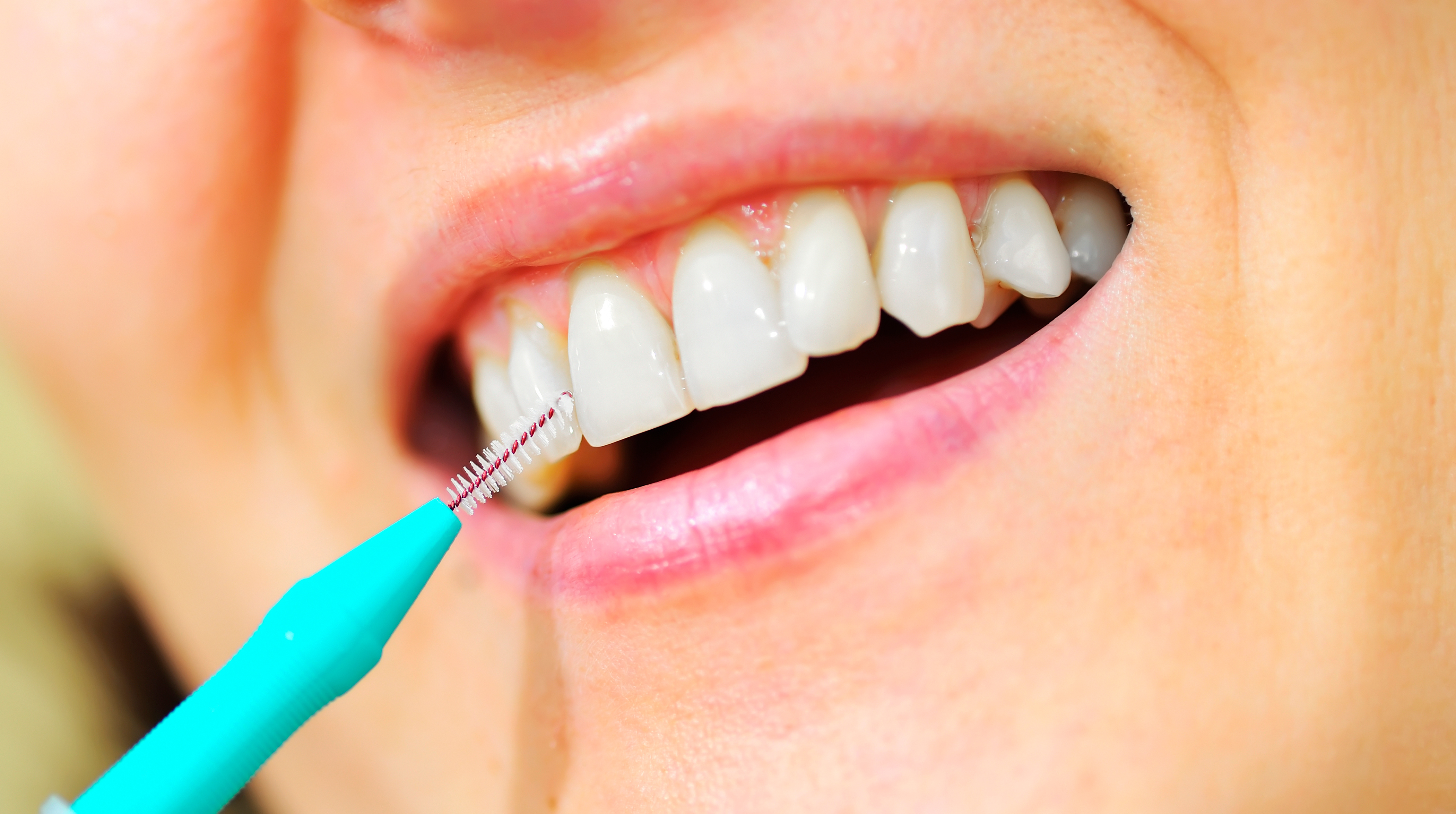
Bleeding gums
If you see a little bit of blood when you start, don’t be too alarmed. It can be completely normal when you first start using interdental brushes to bleed a little. The gums can be tender and need a bit of time to get used to the brushes as you rid your teeth of any plaque build-up. That said, if the bleeding continues after a few days, you should speak to your dentist, dental hygienist, or dental implant expert. It’s possible you’re not using the brushes correctly, or there might be a better method for you to clean between your teeth.
Can I re-use my interdental brush?
It is perfectly ok to re-use your interdental brush. After using it, you can rinse it off, just like you would with a normal toothbrush. It’s also a good idea to straighten out the interdental brush after using it. However, you should make sure you keep an eye on it in case it is starting to look a bit worse for wear. If the bristles are looking worn or the wire is beginning to bend, then it’s probably time to start using a new interdental brush. On average, if you are cleaning with an interdental brush every day, then you can expect it to last for around 2 weeks.
Regular hygienist appointments
If you have dental implants it is especially important to make sure you have regular hygienist appointments. This will ensure you are maintaining the best oral hygiene practice to keep your dental implants in optimum condition. A dental hygienist will be able to detect any signs of periodontal or peri-implant disease advise and can advise on treatment. If you would like to make an appointment with the dental hygienist at Audley Dental, click here.
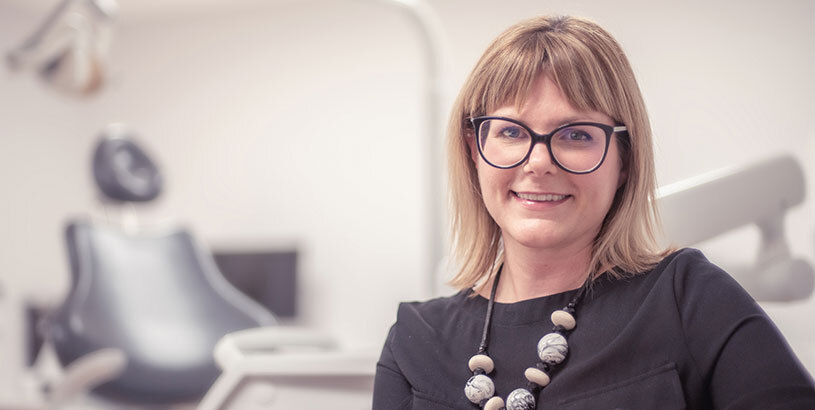
Conclusion
Most of us appreciate a healthy and attractive smile, but there are other reasons for keeping your teeth and dental implants healthy. We need them to eat and chew so we can digest our food properly. In addition, we need them to speak and make sounds. All good reasons to ensure teeth are kept in tip-top condition. Interdental brushes are an excellent tool for ensuring your teeth and dental implants remain clean, healthy, and free of plaque build-up and gum disease. If we don’t use interdental brushes as part of a regular, oral hygiene routine, then we are at an increased risk of developing dental problems including gum disease, cavities, and peri-implant disease. In addition, poor oral hygiene has been linked to wider health problems such as diabetes, heart disease, and stroke. If you have dental implants, then you are also at risk of shortening their lifespan if you don’t look after them properly. Bearing this in mind, it is well worth a little extra time and care and incorporating interdental brushing into your normal oral hygiene and dental implant cleaning routine.
If you are concerned about your dental implants or would like advice on gum disease and how to prevent it through techniques such as interdental brushing then please give us a call on 01280 848 945 or contact us here.

